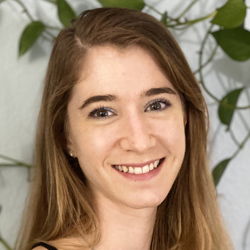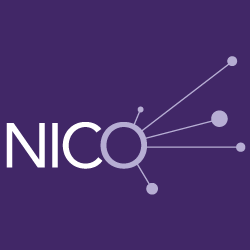Events
Past Event
WED@NICO SEMINAR: Alina Arseniev-Koehler, UC San Diego "Disease Frames and their Consequences for Stigma, Advocacy, and Research Funds"
Northwestern Institute on Complex Systems (NICO)
12:00 PM
//
Lower Level, Chambers Hall
Details

Speaker:
Alina Arseniev-Koehler, Postdoctoral Fellow, UC San Diego in the Division of Biomedical Informatics, and Assistant Professor of Sociology, Purdue University
Title:
Disease Frames and their Consequences for Stigma, Advocacy, and Research Funds
Abstract:
Illnesses are often understood through frames: for instance, as battles, journeys, or even as criminal acts. Framing highlights some aspects of a condition, while hiding other aspects; this can be stigmatizing or motivating. This ongoing research with Rachel Best studies disease frames at scale, including their consequences for stigma, advocacy, and research funds. We examine 6 frames for 106 conditions in news media, using a combination of word embedding and regression methods. Our corpus includes over four million news and magazine articles and news broadcasts, about health and illness, and published between 1980 and 2018. First, we examine how diseases are framed around gender, medicalization, criminalization, and philanthropy, as well as battle and journey metaphors. Second, we examine the extent to which each frame is associated with diseases’ level of stigma, advocacy, and amount of federal research funding. Finally, we examine relationships between these frames: to what extent do illness frames compete versus cohere?
Speaker Bio:
Alina Arseniev-Koehler is an Assistant Professor of Sociology at Purdue University, currently on leave for postdoctoral training in biomedical informatics at UC San Diego. She specializes in cultural sociology, the cultural determinants of heath including social stigma, and computational methods (especially, natural language processing). Her research has been featured in top tier outlets including PNAS, American Journal of Public Health, and American Sociological Review.
Location:
In person: Chambers Hall, 600 Foster Street, Lower Level
Remote option: https://northwestern.zoom.us/j/92596866667
Passcode: NICO2024
About the Speaker Series:
Wednesdays@NICO is a vibrant weekly seminar series focusing broadly on the topics of complex systems, data science and network science. It brings together attendees ranging from graduate students to senior faculty who span all of the schools across Northwestern, from applied math to sociology to biology and every discipline in-between. Please visit: https://bit.ly/WedatNICO for information on future speakers.
Time
Wednesday, April 17, 2024 at 12:00 PM - 1:00 PM
Location
Lower Level, Chambers Hall Map
Contact
Calendar
Northwestern Institute on Complex Systems (NICO)
WED@NICO Winter Seminar Series returns on January 28th!
Northwestern Institute on Complex Systems (NICO)
12:00 PM
//
Lower Level, Chambers Hall
Details

The Wednesdsays@NICO speaker series will return for the winter quarter on January 28th, 2026, running through March 4th. Speakers will be announced in January!
Location:
In person: Chambers Hall, 600 Foster Street, Lower Level
Remote option: Zoom links will be provided
About the Speaker Series:
Wednesdays@NICO is a vibrant weekly seminar series focusing broadly on the topics of complex systems, data science and network science. It brings together attendees ranging from graduate students to senior faculty who span all of the schools across Northwestern, from applied math to sociology to biology and every discipline in-between. Please visit: https://bit.ly/WedatNICO for information on future speakers.
Time
Wednesday, January 28, 2026 at 12:00 PM - 1:00 PM
Location
Lower Level, Chambers Hall Map
Contact
Calendar
Northwestern Institute on Complex Systems (NICO)

